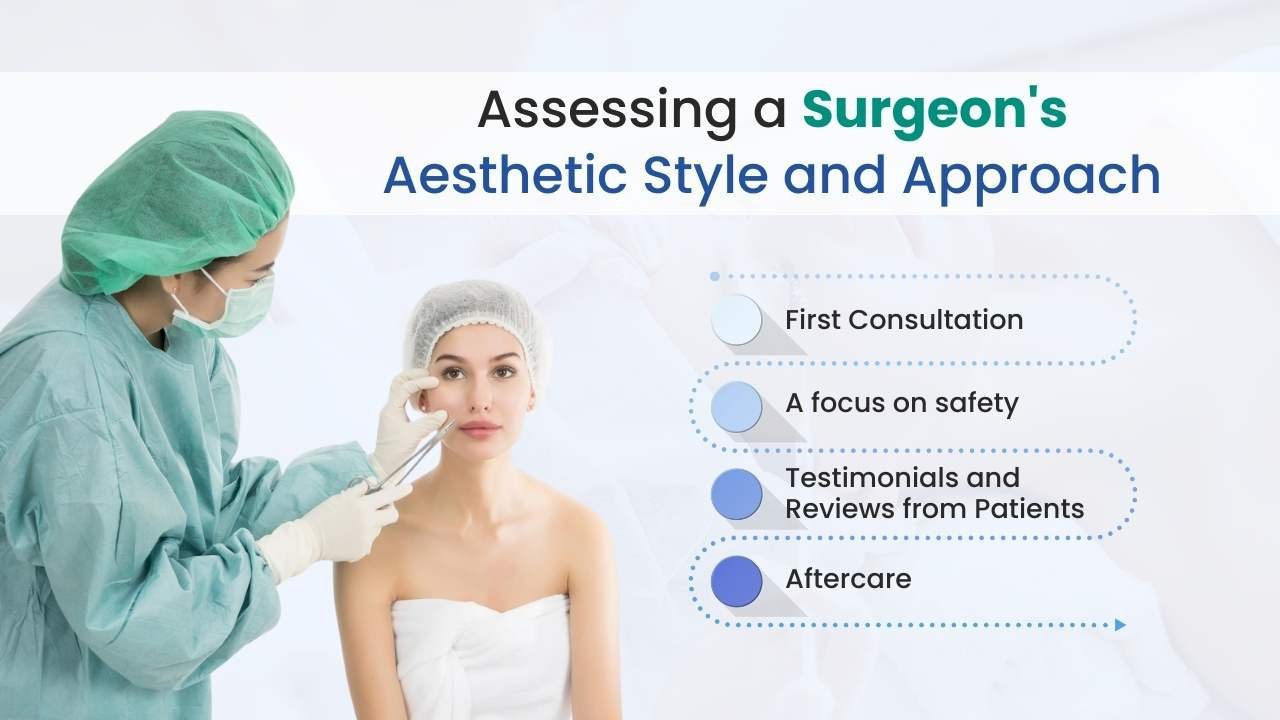Home Blogs Cosmetic and Plastic Surgery How to Find a Good Plastic Surgeon: Your Comprehensive Guide

Plastic surgery is a highly personalized journey, which makes it important to choose wisely. However, if you’re wondering how to find a good plastic surgeon, then you should focus on credentials, safety, communication, and trust. Moreover, the right surgeon ensures realistic outcomes, prioritizes your well-being, and helps you achieve results that truly fit your goals
A plastic surgeon is a physician who specializes in performing surgeries to fix or restore damaged body tissue, enhance appearance, or treat birth defects or acquired abnormalities. Repairing burn damage and improving someone's aesthetic appearance are just a few of the many procedures they can perform. They can also undertake reconstructive and cosmetic surgeries.
Want to know more about how to select the right plastic surgeon? Read ahead to choose your surgeon wisely.
Any plastic surgeon on your shortlist ought to hold an American Board of Plastic Surgery (ABPS) board certification. Indeed, it is advisable to verify the qualifications of the surgeon before proceeding with the process of making an appointment.

Look for uniformity, outcomes that look natural, and the surgeon's aesthetic sensibility when examining a plastic surgeon's before-and-after pictures.
Seek out patients with comparable body shapes and characteristics to your own, and be mindful of specifics such as scar placement, lighting, and positioning. The patient's look should ideally be improved rather than drastically altered.
Case Studies:- Case studies showcase a surgeon's work on specific procedures, demonstrating their ability to achieve desired results.
Patient Testimonials:- Testimonials provide information on a surgeon's communication style, bedside manners, and general patient satisfaction. What to search for:
A successful surgical procedure depends on you and your surgeon developing a relationship of trust. It entails locating someone with whom you are at ease, who speaks plainly, and who you think is looking out for your best interests.
The surgeon's reputation, communication style, and rapport developed during consultations are only a few of the interactions and perceptions that contribute to the development of this trust.
The key to a strong relationship between you and your doctor is good communication. When you feel comfortable with your surgeon, you’re more likely to share your concerns, hopes, and fears openly. This helps your surgeon understand what you want and tailor their approach to meet your specific needs. Clear communication is really important for achieving results that make you happy.
You know that success isn't only dependent on a surgeon's abilities. They also depend on how well you can express your desires. Establishing an open line of communication and being as clear and honest as you can will help you and your doctor stay on the same page. You can ask as many questions as you like, and respond to your surgeon's inquiries thoroughly.
FAQs
When speaking with a plastic surgeon, refrain from saying anything that might cast doubt on their knowledge, call into question their judgment, or convey irrational expectations.
Find the finest plastic surgeon by looking into their credentials, track record, and patient testimonials. Then, set up consultations to evaluate their surgical technique and communication style.
Based on the particular treatment and other variables, the plastic surgery cost in India can vary greatly, from about 1500-6500 USD. A number of variables affect the price, such as the kind of operation, the expertise of the surgeon, the clinic's location, and the case's complexity.
Between Dermatologists and plastic surgeons, no one is better. The individual's particular demands and concerns will determine the best option. Plastic surgeons specialize in surgical techniques to restore or remodel bodily parts, whereas dermatologists concentrate on medical and cosmetic treatments for skin disorders.
The least intrusive and least likely to cause issues are often the "safest" plastic surgery techniques. Microdermabrasion, laser skin resurfacing, and Botox and filler injections are a few examples. When carried out by a skilled and knowledgeable surgeon, more involved procedures like scar revision, liposuction in tiny regions, and blepharoplasty (eyelid surgery) can also be rather safe.
The nose reshaping procedure, known as rhinoplasty, is frequently regarded as the most difficult plastic surgery to recover from. Although the nose's appearance and functionality can be greatly enhanced, the healing period may be drawn out and include a great deal of pain and swelling.
Avoid using aspirin or ibuprofen, smoking, drinking alcohol, wearing cosmetics or perfume, and eating or drinking after midnight before having plastic surgery. Avoiding irrational expectations and being forthright with your surgeon regarding your medical history and current medications are also crucial.
Although everyone has a different threshold for pain, the Brazilian Butt Lift (BBL) and tummy tuck (abdominoplasty) are often listed as among the most excruciating plastic surgery procedures. Significant tissue manipulation is required for these procedures, and recovery times can be somewhat unpleasant.
Liposuction, breast augmentation, rhinoplasty (nose reshaping), tummy tucks (abdominoplasty), and facelifts are routinely among the most popular plastic surgery operations worldwide, while the exact methods differ. Various aesthetic issues are addressed by these procedures, ranging from facial rejuvenation to body reshaping.

Written By
A hard working, patient centred, skillful and knowledgeable doctor who is always ready to learn.
From a very young age she aspired to be in the medical field, to help cure the ailing. She believes that relief on the patient's face, the smile of gratitude and the feeling of helping someone is all what matters.
SOURCE
HISTORY
At Mejocare, we prioritize accuracy and reliability. Our content is based on peer-reviewed studies, academic research, and medical associations. We avoid tertiary references. Learn more in our editorial policy. Trustworthy health information for you.
https://www.plasticsurgery.org/news/blog/finding-the-right-plastic-surgeon-for-you para 4 https://cosmeticsurgerynagpur.com/how-to-choose-the-right-plastic-surgeon-credentials-red-flags/ para 6 https://blog.manchesterplasticsurgery.com/the-importance-of-trust-why-a-good-rapport-with-your-plastic-surgeon-makes-all-the-difference para 3
CURRENT VERSION
Our care team can help you.
